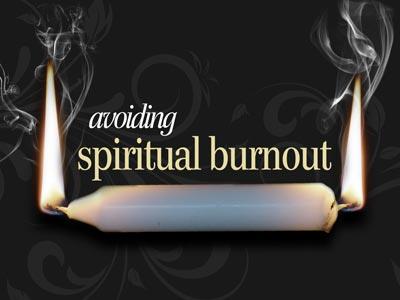-
Good Grief
Contributed by T Batterson on Jun 13, 2005 (message contributor)
Summary: When the tragedies of life overwhelm us, the word of God teaches us steps to cope.
GOOD GRIEF!
By T. M. Batterson
(Isaiah 60:20) “Thy sun shall no more go down; neither shall thy moon withdraw itself: for the LORD shall be thine everlasting light, and the days of thy mourning shall be ended.”
I’ve seen people who have experienced grief that left their lives permanently “derailed.” They were moving down the track of life when SUDDENLY something unexpected happened, and it knocked them out of the race forever. Everything they did – from that moment on – was defined by that tragedy. Every decision was based on that trauma. Every happy occasion was overshadowed by that pain. They were unable to move beyond the event, unable to get themselves back on track. Their spirit was left crippled by their tragedy.
Then again, I’ve seen people who’ve experienced equally tragic events, who, after a period of mourning, get on with their lives. They are somehow able to get “back on track,” though admittedly, it may be a different set of tracks. They are changed, indeed, but able to function, make decisions, and enjoy productive lives in the Lord.
Why the difference? After studying the scriptures, I believe it’s because in modern day society there’s a great misconception about “mourning” and what it means. It is presumed that “mourning” and “grief” are the same thing, but they are not.
The first group of people described above (those who become derailed) remain in a perpetual state of grief (an emotion), while the second group engage in the activity of mourning. The biblical definitions of the words for “grief” and “mourning” mean very different things AND have very different results.
There is a number of Hebrew and Greek words that have all been translated “mourn or mourning.” While they have slightly varied meanings, they all basically mean “to wail, weep, make oneself bald, wear sackcloth, wallow thyself in ashes, and fast.” Mourning is actually the “time” one spends engaged in these acts.
On the other hand, grief has to do with the “feelings” associated with death, rather than an activity or set of actions. Grief means “provocation, wrath, sorrow, anger, indignation, sore spite, vexation, frustration, annoyance, and pain.” Anyone who’s ever experienced a serious loss knows that the feelings associated with grief are valid emotions and are a necessary part of mourning. But the emotions that accompany grief are also very powerful feelings that, if left inside indefinitely, can cause serious breakdowns in body, mind, and spirit. David said, “Mine eye is consumed with grief, yea, my soul and my belly.” (Psalm 31:9) We are not meant to grieve forever. Grief is meant to be part of the process of mourning. If we grieve without end, we become weak and lose our strength. (See Psalm 6:2 and Psalm 31:10).
The Bible says that there is “a time to mourn.” (Ecclesiastes 3:4). It is a definite set time, a season, an occasion, with a specific beginning and a specific ending. One phrase repeated over and over in the Word concerning mourning is “when the time of mourning had come to an end….” It is a very deliberate action intended to result in a specific purpose. Mourning is meant to help people adjust to their loss and restore them back to life.
When Jacob died, the Bible says that Joseph flung himself upon his father’s face, wept over him, and kissed him. Joseph and the Egyptians mourned Jacob for 70 days, as was their custom. But when the mourning period was over, Joseph returned to Egypt and on with his life. When King David’s new baby became critically ill, David entreated God for the boy. The king fasted and spent the night lying on the ground on his face. His servants tried to persuade him to eat and get up from the ground, but he refused. On the seventh day the child died. After the way David had already carried on, his servants were afraid to break the news to him. When he learned that the child was dead, David rose from the ground, bathed, anointed himself, and changed his clothes. He went straight to the House of God and worshiped, and then he went home and ate. When his servants questioned his actions, David said, “While the child was yet alive, I fasted and wept: for I said, Who can tell whether God will be gracious to me, that the child may live. But now he is dead, wherefore should I fast? Can I bring him back again? I shall go to him, but he will not return to me.” (2 Samuel 12:22-23).
The examples above show us Joseph and David engaged in biblical mourning. They understood that there is a time and purpose for mourning, a set period – with a beginning and an end. During the time of mourning, it is perfectly acceptable (even desirable and healthy) to withdraw, wail, cry, fast from food and from other comforts or pleasures. But when the period of mourning is over, we are meant to get up, worship God, and continue on with our lives.

 Sermon Central
Sermon Central



